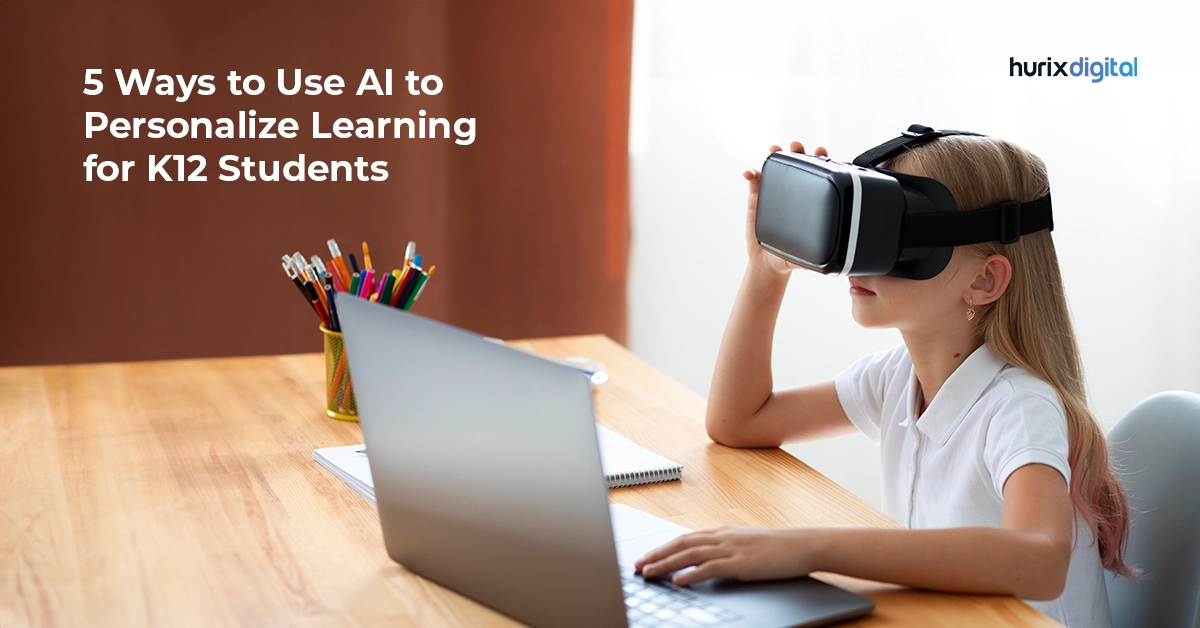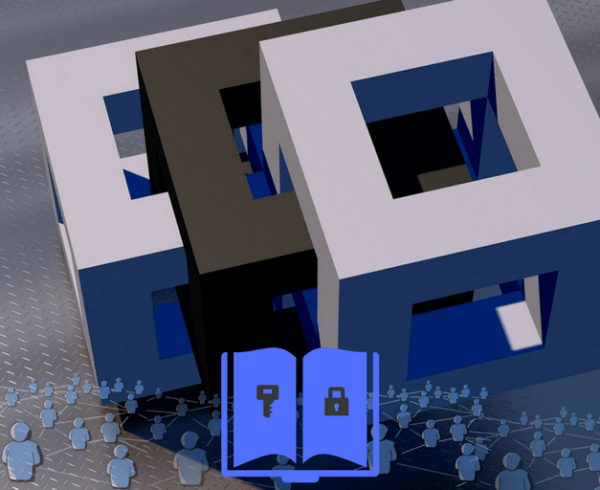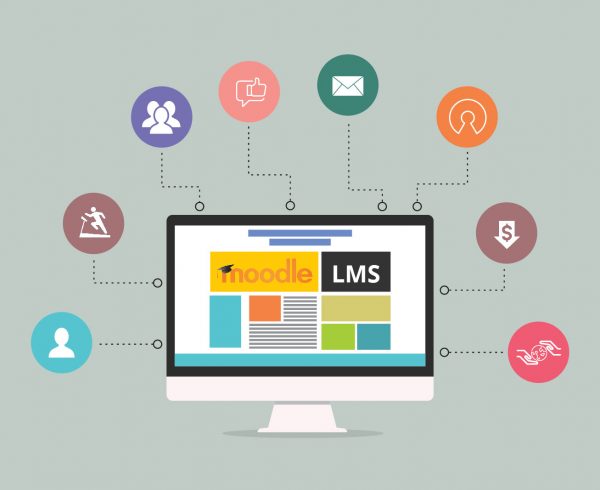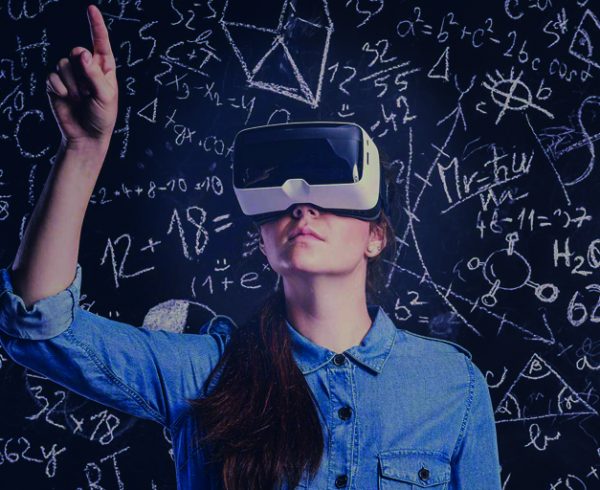Summary
This blog explores the revolutionary impact of AI in K12 education and how it can improve the learning journey for students and educators. It has also highlighted the top five ways AI is used in education.
The amalgamation of Artificial Intelligence (AI) with education is reshaping traditional teaching methods and unlocking a world of possibilities for K12 schools in the United States.
As per a survey, in 2022, over 25% of companies successfully integrated AI into an EdTech product compared to just 14% reported in 2019. Furthermore, UNESCO has also issued a declaration of support, emphasizing the utilization of AI technologies to fulfill the objectives of the Education 2030 Agenda.
This blog aims to explore the revolutionary impact of AI in K12 education in the U.S. and feature the top five ways schools can channel the power of AI to revolutionize the learning journey for students and educators.
Table of Contents:
How Can AI in K12 Education Improve?
In the United States, K12 education is on the brink of a technological revolution, with AI in K12 education ready to redefine the way students learn and educators teach. Having said that, the digital divide remains a challenge in American education, with disparities in access to resources.
Artificial Intelligence in education can play a crucial role in addressing this gap by providing virtual tutoring, online resources, and interactive learning materials. This ensures that students, regardless of their geographical location or socioeconomic status, have access to quality educational content.
Furthermore, AI is not just for students. It can also support educators in their professional development. AI-driven platforms can offer insights into teaching methodologies, recommend best practices, and provide feedback. This continuous learning loop for educators contributes to an evolving and adaptive teaching landscape.
Also Read: AI Benefits in Education: 5 Ways AI Can Help You Increase Student Engagement
How is AI Used in Education?
Here are the top five ways AI is used in education across the world that K12 schools in the U.S. can utilize to enhance the overall learning experience:
1. Adaptive Learning Platforms
Traditional education systems often struggle to accommodate the diverse learning needs of students within a single classroom. Enter adaptive learning platforms, a groundbreaking application of AI in K12 education that addresses this challenge head-on, and the results are phenomenal.
The heart of adaptive learning lies in its ability to adjust the delivery of content dynamically. If a student excels in a particular area, the platform may advance them to more challenging material. Conversely, if a student struggles, the platform adapts by providing additional explanations or practice.
In short, adaptive learning platforms contribute to creating a more inclusive educational environment. They cater to diverse learning styles and provide personalized curriculum, ensuring that students with different needs receive the support they require.
2. Intelligent Tutoring System (ITS)
ITS represents a sophisticated application of AI in education, aiming to emulate the personalized support provided by human tutors. The goal is to create a virtual tutor that adapts to the needs of the students and is as accurate as a human tutor.
Not only that, ITS often incorporates various modes of interaction, such as text-based explanations, multimedia presentations, and interactive simulations for conversational interactions. This multi-modal approach allows the system to adapt to the preferences of individual students.
In addition to supporting students, Intelligent Tutoring Systems generate valuable insights for educators. By aggregating and analyzing data on student performance, these systems provide educators with a comprehensive view of class-wide and individual progress.
3. Gamification in Education and AI
Incorporating elements of gamification into educational experiences, coupled with the power of AI, is an innovative way to engage and motivate learners. Gamification involves applying game design principles to non-game contexts, and when combined with AI in K12 education, it creates an interactive environment that captivates students.
AI enables gamified educational platforms to adapt challenges and rewards based on individual performance. Tailored rewards and recognition systems, such as badges, points, or virtual currency, provide immediate feedback and motivation, reinforcing positive learning behaviors.
Lastly, AI-powered gamification can facilitate collaborative learning experiences. It can also provide insights into group dynamics and individual contributions. Students can work together to overcome challenges within a game, fostering teamwork, communication, and problem-solving skills.
4. Real-time Feedback and Assessment
One of the transformative aspects of integrating AI in K12 education is the capability to provide real-time feedback and assessment. The integration of AI into assessment processes allows for instantaneous feedback, creating a dynamic and responsive learning environment.
Published in the peer-reviewed journal Educational Evaluation and Policy Analysis in May 2023, a recent study led by Stanford revealed that an AI-powered automated feedback tool enhanced instructors’ utilization of the teaching practice called uptake.
The study also presented evidence that the tool positively impacted students, increasing their assignment completion rates and overall satisfaction with the course.
AI-based assessment tools can evaluate students’ responses to quizzes, assignments, and other learning activities in real time. Apart from providing automated feedback in real-time, AI also simplifies the grading and assessment process for educators and can help teachers spend 70% less time on grading.
5. AI-Powered Personalized Career Guidance
Schools can implement Artificial Intelligence to provide personalized career guidance for students. By analyzing students’ academic performance, interests, and aptitudes, AI systems can offer tailored insights into potential career paths, recommended courses, and skill development opportunities.
Personalized guidance also helps students explore diverse career options and adapt their learning paths accordingly, cultivating a sense of purpose and direction in their academic pursuits.
This personalized approach empowers students to make more informed decisions about their educational and career journeys, ensuring that their academic pursuits align with their long-term goals.
Also Read: AI-Powered Education: Revolutionizing K-12 Learning through Robotics and AI
Wrapping Up
As we navigate the complexities of education in the 21st century, AI emerges as a powerful ally in enhancing the quality and accessibility of K12 education in the United States. From personalized learning experiences to early intervention strategies and ongoing professional development, AI holds the key to unlocking the full potential of both students and educators.
Experience a transformative journey in education with Hurix Digital’s K12 Content Solutions. Our comprehensive K12 Content Library is meticulously crafted to align with global curricula, catering to elementary, middle, and high school levels. Dive into a world of linguistic diversity with our Multilingual Learning Content, ensuring inclusivity and accessibility for all students.
Get in touch with us to know more!











